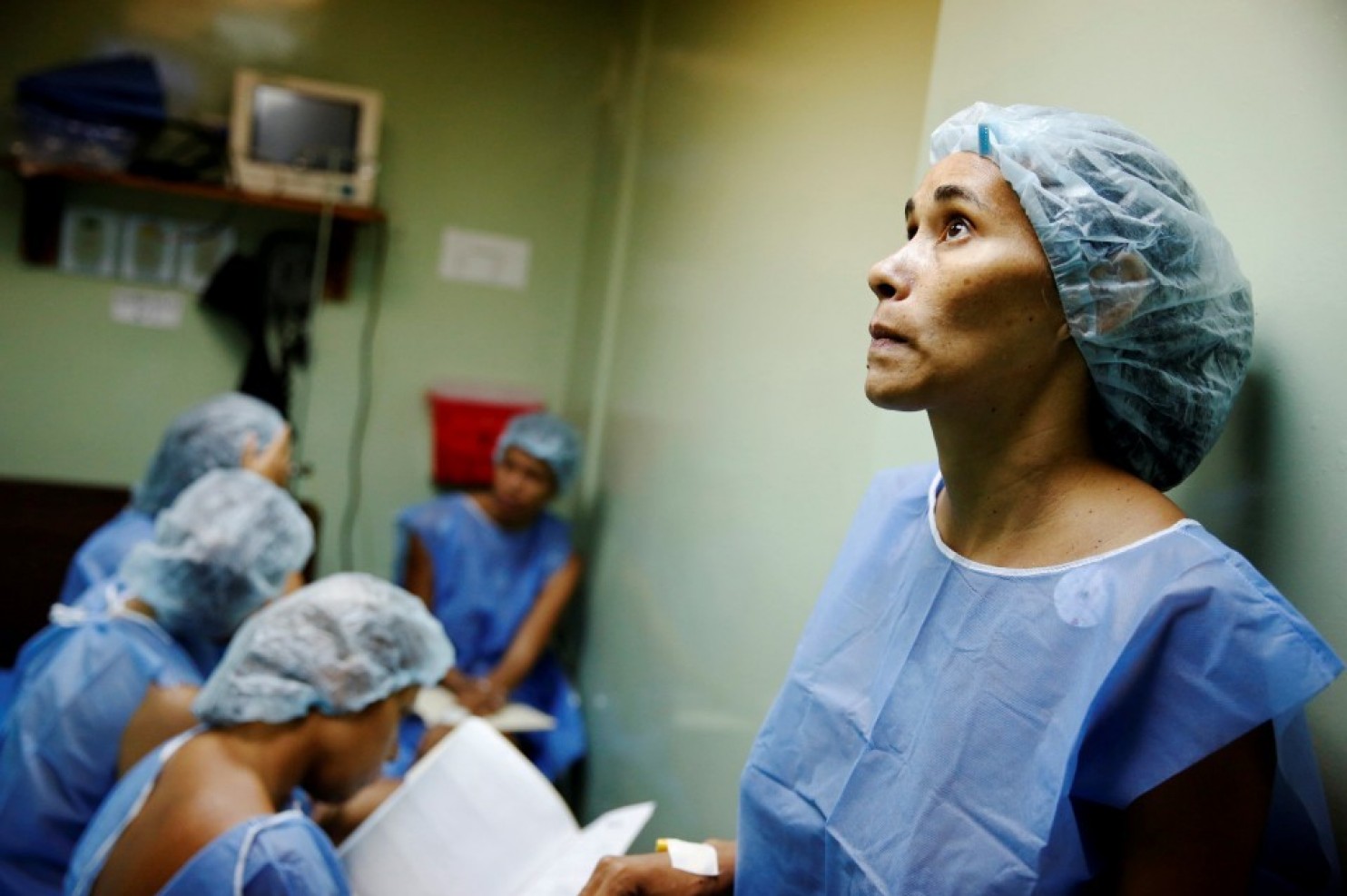Venezuelan women’s response to the country’s economic crisis: Get sterilized
December 4, 2016

Women wait for sterilization surgery in a hospital in Caracas, Venezuela, on July 27. (Carlos Garcia Rawlins/Reuters)
CARACAS, Venezuela — In crisis-hit Venezuela, where raising a family is an increasingly grueling and expensive task, a growing number of young women are choosing to be sterilized.
With inflation spiraling out of control, food and medicine supplies dwindling and violent crimes on the rise, women as young as 27 are seeking out surgeons to avoid unwanted pregnancies.
A study by PLAFAM, the biggest family planning clinic in the country, estimates that about 23 percent more Venezuelan women are being sterilized today as compared to four years ago, said the clinic’s director, Enrique Abache. “The financial crisis is one of the main causes for this,” he explained.
Years of government mismanagement have fueled what is now a full-blown humanitarian crisis in a country where infant mortality has almost doubled in recent years. A study of nearly 1,500 adults last year by a group of academic and social-service groups found that 87 percent of them lacked enough money to buy the food they needed.
“It wasn’t a hard decision to make,” said a recently sterilized mother of two, who spoke on condition of anonymity because of the personal nature of the topic. “It was the most feasible option … because of the country’s financial situation.”
The 31-year-old opted to be sterilized in November, as soon as she gave birth to her second daughter. “It’s so difficult to find contraceptive methods and the [baby’s] basic needs are hard to fill,” she explained.
In a country where government-subsidized products are the most affordable but the least available, mothers often spend whole days searching for milk powder or diapers. Those who can’t find them are simply forced to go without or turn to the black market, where these products are often readily available at inflated prices.
The shortage of traditional contraceptive methods like condoms has also fueled the rise in sterilization.
Damarys Ramos, a gynecologist who works in Caracas, said Venezuelans often are limited to whatever contraception is available in stores or markets at the moment. More often than not, birth control can be found only on the black market — and at very high prices. Venezuelan women are hashtagging “contraceptive method” on Instagram to find the illegal sellers and buy the products, explained Ramos. Abache, the PLAFAM director, said some black-market vendors are selling fake contraceptive methods.
Sterilization can be expensive, running around $1,500, an exorbitant price for the average Venezuelan. Many women participate in “sterilization days,” during which they can get free or reduced-rate operations under a program run by the government and nonprofit groups. The program has become increasingly popular, with slots booked months in advance.
Abache said his clinic does sterilization procedures on an average of 30 women per week, many more than it did four years ago.
In this overwhelmingly Catholic country, not even the teachings of the church have deterred women from choosing to have smaller families. Lorena Ramos, 36, dreamed of having four children, but she and her husband’s combined monthly income is just over $100. That’s hardly enough to raise their two sons, let alone four. “The financial situation allows for only two children,” said Ramos.
She asked to be sterilized eight months ago, as soon as her second child was born. “The doctor asked me if I was sure, I said absolutely,” she recounted. “In order to have three we would have to change our car and house. It would mean moving, and all of those things are hard to do in this country at the moment.”


